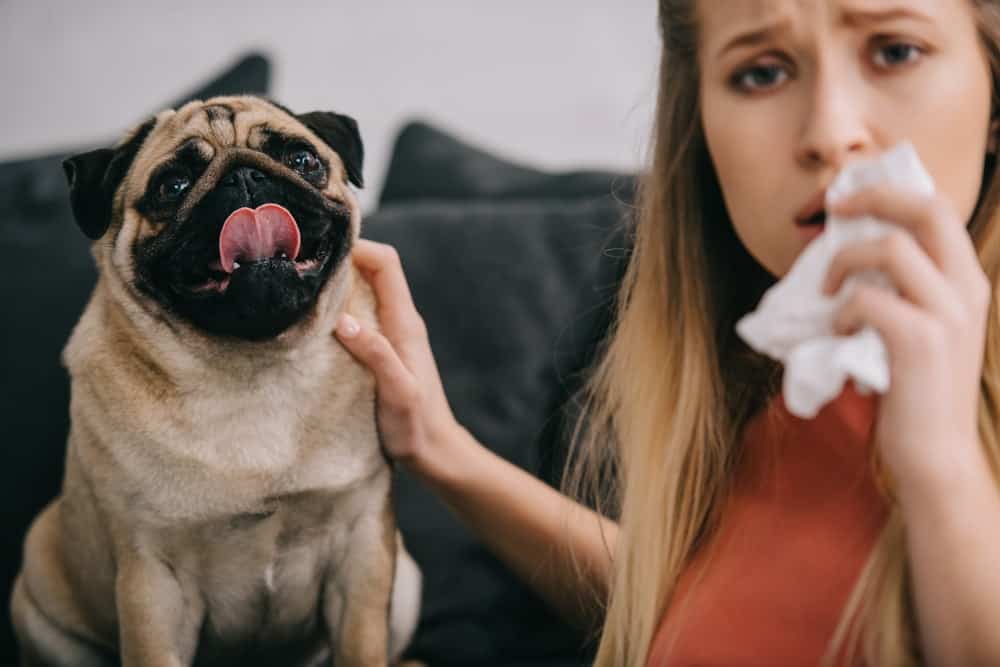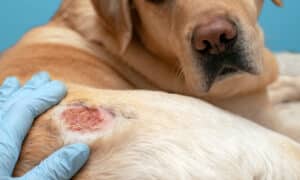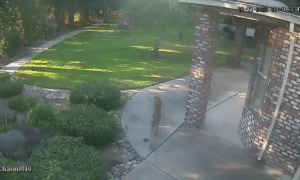“This post contains affiliate links, and I will be compensated if you make a purchase after clicking on my links.”
By JJ Keeler
Unfortunately for animal lovers, allergies to pets are common; in the United States, about 30% of people are affected. In perhaps a nod to their ornery ways, cats provoke more allergies than dogs; you’re twice as likely to be allergic to Whiskers than you are Rex. Still, dog allergies are an issue for those who love wet noses and floppy ears: Your heart says “yes” but your nose protests.

The Cause of Pet Allergies
Allergies (to pets and anything else) happen as the result of an overreactive immune system. The job of the immune system is to protect the body, defending from viruses, bacteria, and other foreign invaders. But, with allergies, the immune system makes an error in judgment, ultimately mistaking benign things for the enemy. This causes an allergic reaction.
Interestingly, it’s not pet fur that causes the allergy; rather, it’s the proteins in the animal’s saliva, urine, and dander (technically, dead skin cells). The fur collects these proteins, which is why we equate it with our sniffing and sneezing.
Pet allergens are all around; they can even be found in homes without animals. The allergens get stirred up into the air and then travel wherever, hitching a ride on clothes or backpacks. Pet fur can also collect outside allergens, such as pollen or cotton, exacerbating the situation.
The Symptoms of Allergies
Most people are aware that they have allergies; if you’ve had a runny nose since the summer of ‘84, you’re probably affected. Even so, it can be difficult to tell allergies apart from colds and flus, but allergies don’t come with fevers, aches, or hacking coughs. Cold and flus, on the other hand, don’t come with watery eyes.
People with dog allergies are most likely to have nasal symptoms, which include:
- A tickling cough
- Wheezing
- Red, watery, or itchy eyes
- A runny nose or nasal congestion
- Sneezing
Some people may experience skin allergies as well, whenever they pet a dog or when a dog licks them. They may break out into hives or a patch of eczema, a condition that makes the skin itchy and red; it’s often present in those with asthma or hay fever. While pet dander doesn’t cause eczema, it can trigger a flair.
Pet allergies are most dangerous in people with asthma or those whose allergies are so severe that they have the potential to cause anaphylactic shock.

The Myth of the Hypoallergenic Dog
There’s a lot of talk about hypoallergenic dogs, dogs of certain breeds (such as poodles) that are believed to be allergy-free. Yet as allergists and asthma doctors will tell you, there’s really no such thing as a hypoallergenic pet…..unless your beloved companion is a pet rock.
However, it is possible for the allergy sufferer to be more susceptible to specific types of dog breeds.
Five Ways to Keep Dog Allergies at Bay
You can’t rush out and get an entirely allergy-free dog (or turn the dog you have into dander-less Daisy), so what can you do if you love your furry friends but also love the idea of easy breathing? Five tricks and tips include:
Talk to Your Doctor: Yes, your doctor will probably tell you to part with your dog and, yes, you will probably laugh at the suggestion. But, after that’s out of the way, your doctor can recommend the best antihistamines, prescribe more potent medication, and even administer allergy shots.
Clean House: You can keep the Roomba rolling all day long and you still won’t remove all the pet dander from your home. But cleaning regularly will decrease that dander, helping to control your allergies in the process. Just make sure to use wet-cleaning over dry (mop instead of sweep and wet-wipe instead of dust) and ask a non-allergic person to empty out the vacuum filters.
Groom Often: While your dog won’t love the concept, bathing Fido regularly (even twice a week!) helps minimize the dander and reduce the threat. Brushing regularly helps too, though the brushing should be done by a non-allergic party. Afterwards, damp the fur with a wet cloth; this keeps the dander from flying about.
Change the Filters…and the Flooring: It’s recommended that people with allergies change their air filters regularly, every 20-45 days at minimum (as opposed to once every three months in pet-free homes). Changing the flooring helps as well, as hardwood surfaces are less likely to harbor dander.
Buy an Allergy-Friendly Pooch: As mentioned above, there is no such thing as a truly hypoallergenic dog – all dogs produce at least some dander and thus cause allergies. But there are plenty of breeds that will wreak less havoc on your sinuses. So, rather than getting a dog that sheds so much you could start a sweater-knitting service, opt for one that limits its dander discard. Some of the best breeds for allergies include Italian greyhounds, schnauzers, Portuguese water dogs, wheaten terriers, Maltese, and poodles (or poodle mixes).
Of course, there are also breeds not recommended for allergy sufferers. These breeds include bulldogs, German shepherds, blue heelers, and labs. If you don’t have a dog yet, it’s best to avoid shedding or saliva-heavy types; if you already have one…..well, no takebacks now.
At least the other above tips can help you keep your dog while keeping yourself happy and healthy.

JJ Keeler lives in Colorado with a house full of pets. For the last year or so she has been a major contributor for PawzWorld.com. She owns three dogs, two cats, and a hamster she bought as a bribe to get her daughter to ride the school bus. She has a BA in English Literature from the University of Colorado and has worked as a professional writer for fifteen years. Her clothes are perpetually covered in pet hair.























